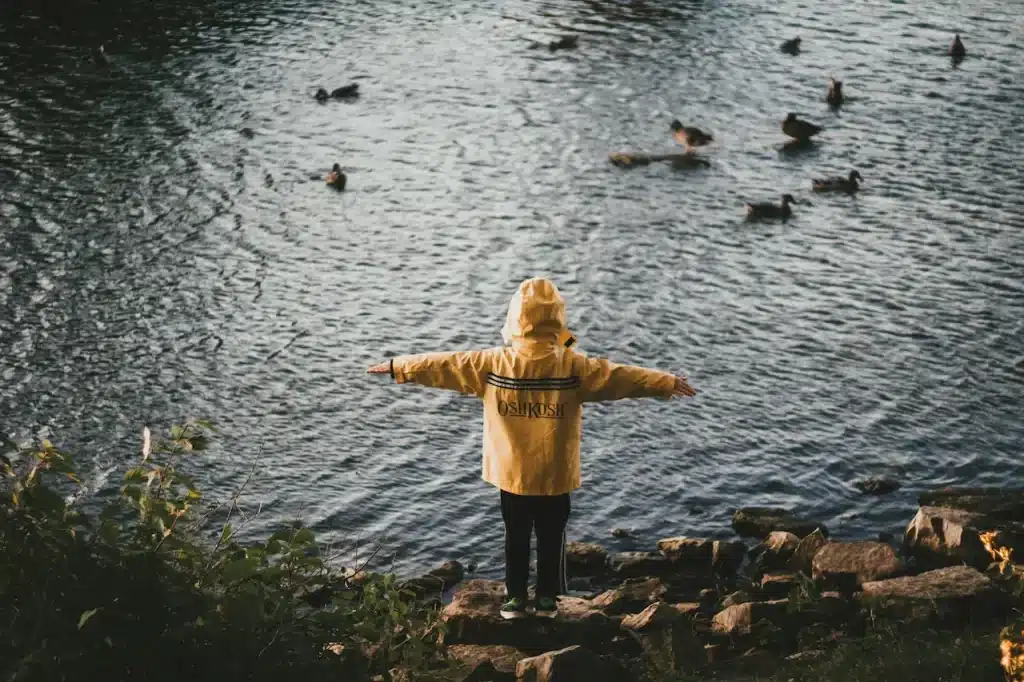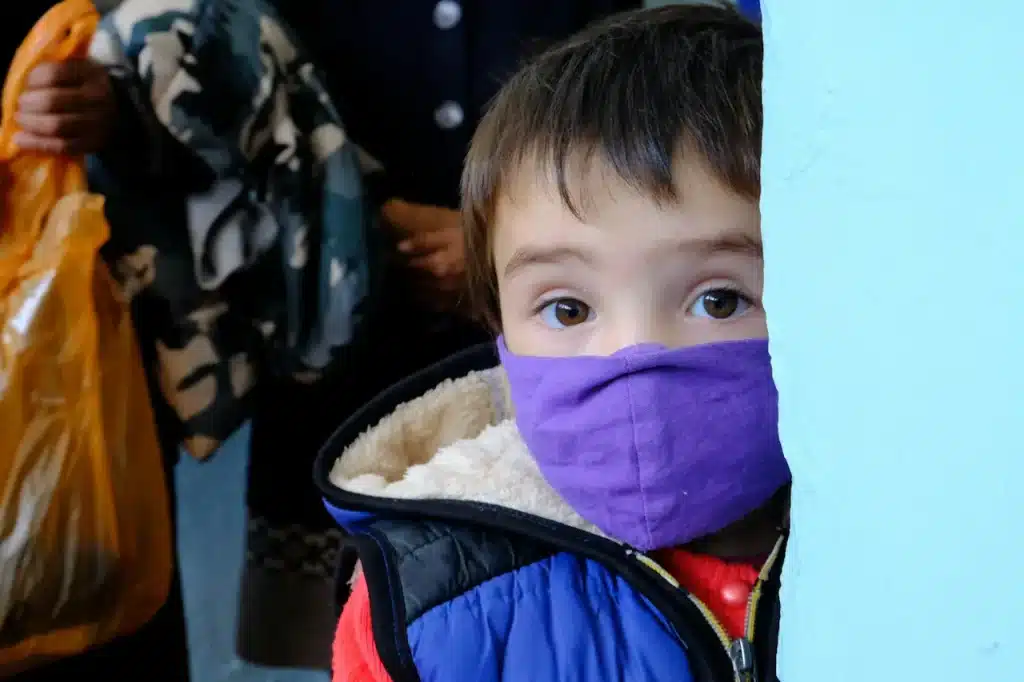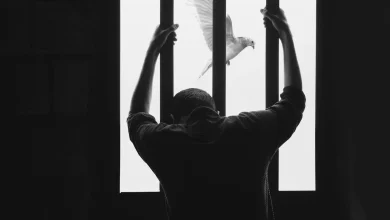1. The Boy Who Shouldn’t Have Survived
Central Vietnam 2012
A child called Minanh, born in silence, was born under a scorching sun, in Quang Binh province, where the Annamite Mountains bowed down to meet the South China Sea. The midwife was shocked to see his skin, which looked dry, cracked and almost scaly, like the bark on a dying tree. She crossed herself and whispered a prayer.
He had no father. Sepsis took his mother, who was a shrimp seller from a remote village fishing community, only two days after he was born. He was called ” CA Be ” – Fisher Boy by the village because of his peculiar affinity for water and his looks. It wasn’t given out of affection. The name was whispered in secret, sometimes out of fear, but more often because it was a sign of shame.
Min Anh suffered from Ichthyosis. This rare genetic condition causes skin to become excessively dry and thick, causing it to crack painfully, like ancient soil in a drought. The affliction was excruciating in the humid and salty air along the Vietnamese coast. Even the slightest movement was enough to tear his skin. The sand felt like broken glass. Sweat burnt. Instead of warming him up, the sun became his enemy.
He lived in an improvised shack made of driftwood, banana leaf, and rusted metal. He curled up like a shrimp and slept on a palm-fibre mat at night. He wandered along the tide pools alone during the day. In the sea he felt less stared at, even though it hurt. The sea was the only place where his skin softened, his joints loosened, and his pain subsided, even if for only a short time.

2. A Widow in an Abroad Land
Cornwall, UK – A letter of hope
In St. Mariann, Holt was a widowed teacher who had been a widow for three years. She stood by her kitchen sink in Agnes, an idyllic Cornish village built into the cliffs overlooking the Atlantic. As if to echo the pain in her chest, the waves pounded on the shore below. Tom, her husband, had died suddenly, of an aneurysm while tending to his garden. Her world has dimmed since then.
The BBC Two “Our Lives’ series flashed across the screen. Marianne was not watching at all, but she did hear a voice describe a boy who had been abandoned by the rest of the world. His skin became hard like a shell, and his soul disappeared from view.
She turned around.
A boy with scale-like skin was filmed walking barefoot on a beach in Vietnam. He trailed behind other children, who were laughing and running ahead. Min Anh was his name. He did not look at the camera. He did not look anywhere. He appeared to float within his silence.
Marianne could not stop thinking about him for days. Her children were grown. She had room. She had space. She had compassion, but sometimes too much and no place to put it. She found the journalist responsible for the segment. She sent letters. She filled out forms. In the time between emails and tides, she did what she hadn’t done for years: She hoped.
3. First Touch
Da Nang Children’s Hospital in Vietnam
Marianne, three months later, stepped out of a plane and into the scorching heat of central Vietnam. Within minutes, her pale skin turned red. She only carried a backpack with a picture of Min Anh. She was met by a translator and they travelled for hours together, first on a motorbike, then on foot, to reach the orphanage near Da Nang where Min Anh, who had been relocated temporarily after the BBC film, had been placed.
He did not come to meet her.
One of the nurses said, “Min Anh’s very shy.” He doesn’t believe anyone. “Except the sea.”
Three days passed before he allowed her to sit next to him. He touched her hand a week before. Two weeks before, he said her name “Ma-ri-an”, like the sound of a new language he wasn’t sure he believed in.
He flinched when she ran a gentle balm over the cracks on his arms. But she didn’t stop. She did it again. She did it again. He didn’t lean into it until he did. It was the first time he had ever felt someone’s love. She soothed more than his pain.

4. Skin and Spirit
A house shaped by two coastlines
Marianne lived in Cornwall, and her cottage looked out onto Trevaunance Cove. The sea was changing moods every hour, with gulls screaming, and the tides ebbing. After months of legal work and sponsorship, Min Anh finally set foot on English soil in 2013.
He was eight years old.
The air was damp and cold. In the new climate, his skin grew redder. His curiosity grew. He began to learn how to count in English. He learned to say “please” (thank you) and “thanks”. In Marianne’s garden, he would sit for hours, watching the leaves move in the wind or how light filtered on the stone walls. He walked cautiously, but without fear.
He received treatment at the Royal Cornwall Hospital, which was not available in Vietnam. This included medicated baths and nutritional therapy. Doctors were stunned. His skin, which was once a battlefield, began to heal. Slowly, steadily, miraculously.
It wasn’t only medicine. It was love. It was the warm towels that you get after a hot bath. Stories by the firelight. Someone who weaved purpose into every aspect of his life.
5. Healing Geography
Skin, salt water and identity
It’s strangely poetic how Min Anh was shaped by the two coasts-Vietnam’s tropical South China Sea, and England’s rugged Atlantic coastline. Water defined the rhythms of life in both places. Both salt and wind carry memories.
Cornwall was different. Nobody called him names here. He was just a boy at the beach, splashing around in his boots, collecting sea glass and writing dreams with driftwood.
He told Marianne that “in Vietnam, I was skin.” “Here, I’m made of stories and sea and wind.”
She still remembers that sentence.
When he was 14, they returned to Vietnam. He wanted to visit the village that his mother once lived in. He no longer felt shame or fear as he stood barefoot on the same sand that he had limped over as a youngster. He was approached by children. He smiled. He nodded when a girl pointed out his arm, which was now smooth and free of cracks.
He replied in Vietnamese, “Yes.” I am the Fish Boy. “But not broken.”
6. The Boy Who Grew Into Water
18-year-olds in 2023
Min Anh has now turned 18. He is currently studying to become a Marine Biologist. The love for the sea that was once a necessity has now become a passion. He is a volunteer with the Cornish Seal Sanctuary and teaches schoolchildren about marine ecology and conservation.
He speaks about his experience living with ichthyosis. He gives talks about resilience. What it means to have two worlds in you – Vietnamese and British, salt and skin, hurt and healing.
Marianne and he remain inseparable. She jokes about how he has grown taller but is still within reach. In an interview, she said that he had saved her. “I thought that I was giving him home. He gave me my purpose back.
7. Closed Tides
BBC crews returned in 2024 to film a sequel documentary. They found a young boy walking along the shoreline wearing a wetsuit. He was collecting samples and laughing with the students. They filmed him diving in the sea, with his skin protected and spirit free.
The voice of the narrator faded in.
Min Anh’s journey, from a Vietnamese village abandoned to the wild edges in Cornwall, is more than just surviving. This is a story about skin remade and soul rekindled. Two shores are joined by love.
Now he is proudly called Fish Boy.
It’s not because of his birth.
He chose to live the way he did.
Geography of the Heart: Epilogue
Min Anh’s story is like a map. It shows not only where he has been, but also who has helped him.
- Quang Binh province brought him to the sea, which soothed his pain.
- Da Nang showed him mercy and medicine.
- Cornwall has given him a home, hope and the opportunity to choose his future.
A widow living in a stone house heard the cry of an orphan boy halfway around the world and responded not with charity but with kinship.
Fish Boy Isn’t Just a Documentary. It’s an ode to resilience. It’s a love letter to resilience. To the idea that the wildest adventures can begin with the smallest human kindness.




